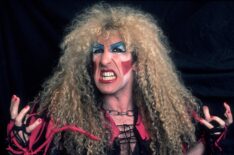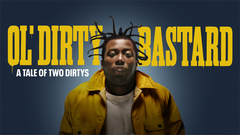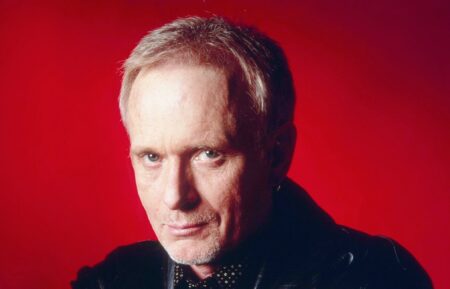‘Ol’ Dirty Bastard’s Widow Icelene Jones Dishes on ‘Beautiful’ Life With Wu-Tang Clan Trailblazer
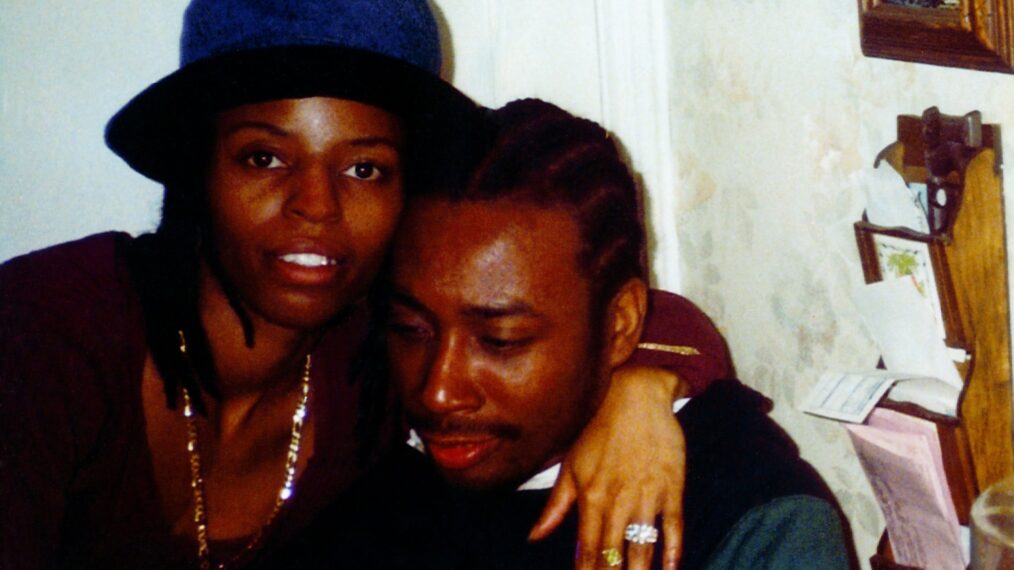
Q&A
A hip-hop trailblazer is the subject of a new documentary Ol’ Dirty Bastard: A Tale of Two Dirtys’ on A&E. The two-hour special peels back the layers of the Wu-Tang Clan founding member ODB to explore his life off stage and away from the spotlight.
Former collaborators including Mariah Carey, Wu-Tang Clan members Raekwon, and Ghostface Killah are among those featured in interviews. ODB’s widow Icelene Jones, son Bar-Sun Jones (YDB), and other loved ones dig into the origin of Russell Tyrone Jones and how he walked the thin line between being a father, husband, and the alter ego that catapulted the entertainer to superstardom.
The doc, co-directed by Emmy and Peabody Ward winner Sam Pollard and Jason Pollard, features never-before-seen archival photos and home movies that show the many faces of the performer. From the controversial MTV segment and making of the smash hit “Fantasy” music video with Carey to crashing the Grammy Awards and run-ins with the law, the rollercoaster ride of ODB is captured through the lens of those who knew him best.
An accidental overdose ultimately cost ODB his life in 2004 at the age of 35, but his legacy lives on through projects such as this. That’s been the mission of Jones, who also serves as an executive producer. Here she opens up about her husband and the making of the doc.
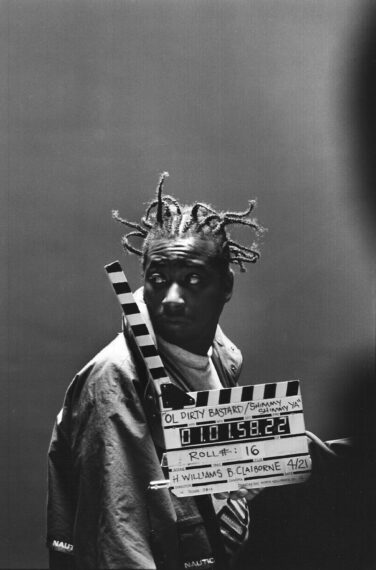
Al Pereira
Take me through the journey of getting this documentary made and airing on A&E as we approach the anniversary of your husband’s passing.
Icelene Jones: The spotlight is definitely on ODB. There is so much going on in putting everything together. It’s a miracle we’re making it happen. He knew it was going to happen just like he knew I would be dealing with his estate. He predicted the future. We knew this documentary was going to take place. We weren’t sure when. There was a battle, but the battle has been won. We’re here with A&E. At Four Screens, we’re all a team and put it out along with my son. He was a great person. He was a real superhero to me. That’s what I saw him as. It was a really positive thing to get this documentary out for people to see who ODB really was. Not just ODB, but Russell Jones, Ason Unique. This is who he really is. We just want the truth to be out there. He had a wife and children. We just wanted people to see who he really was.
We get to see these really fun home movies in the doc from the footage you provide. How do you think that helps paint the picture of who he was away from the cameras and spotlight?
Watching it over and over again and now to have grandchildren. I let them watch it. It got to a point where my manager at Four Screens asked what I was doing with all that footage. I’m like, “We just watch it from time to time.” He was like, “We have to protect these in case something happens.” It was protecting the future to get to this point, whether it was a future biopic, graphic novel in November and this documentary. We have a lot of things going on. We have clothes and figurines. We’re pushing it all because of my husband.
It’s a story about him, but also about yourself and your relationship. What you went through as he went on this rollercoaster ride. How was it revisiting those good and bad times?
There were so many beautiful times before he became ODB. Just us walking, holding hands, talking, going to amusement parks and parties. When you think back, you get emotional. We were having so much fun. He told me I was going to be his wife when we first met. I ended up being his wife. Now 11 grandchildren. He never met any of the grands. It’s like they know him because we keep him alive in a way that they know who he was. We’re watching videos, and photos of my husband and telling stories, so they know who their grandfather was and so on.
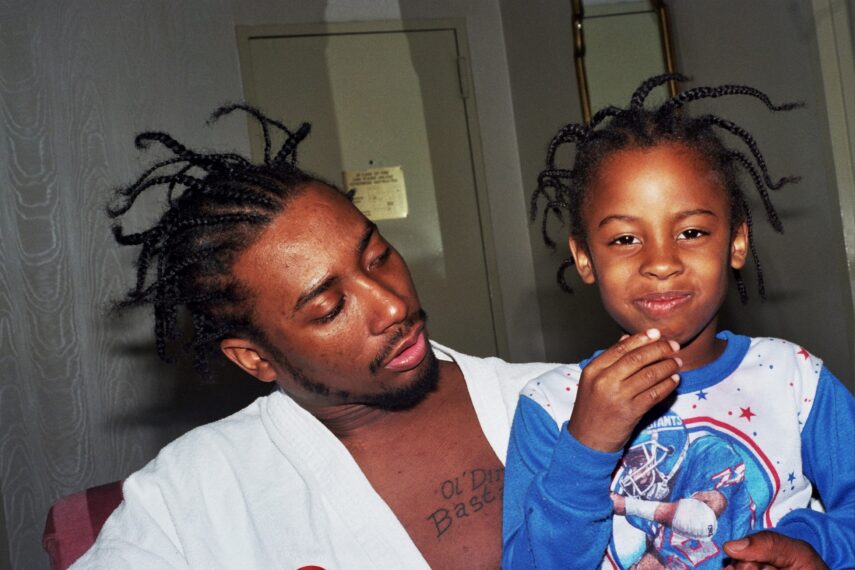
ODB and son Bar-Sun (Young Dirty Bastard) circa 1995 (Jimmy Wentz)
Beyond the biography piece, I think this could be a conversation starter when it comes to mental health, our prison system, drugs and alcohol, and being a public figure. All of this comes to light with ODB.
Yes. My husband abused alcohol and drugs. He did it due to the industry, the music business. I guess he really didn’t know how to deal with it. This was his way of dealing with it was getting high, getting stimulated as he says. He would say, As time went on it became a real big problem. When he went to jail, that messed him up. He came home he was never the same. The drugs they were giving him in jail really messed him up. The system needs to know that when they have people utilizing drugs, they do not need to go to jail but get help, in rehab. That messed him up to be around criminals who committed crimes. That messed him up and made mental issues occur. We knew this was not the ODB we knew to us. That is where it all started to go downhill.
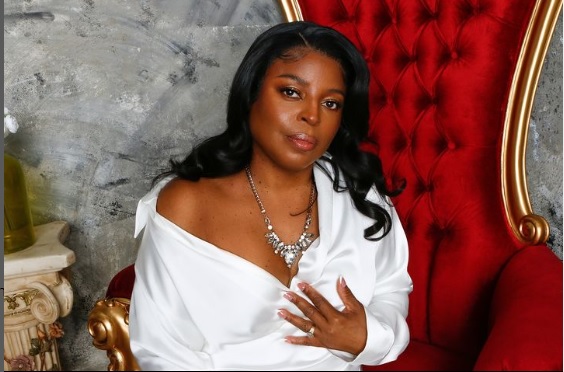
Icelene Jones (Vivian Vo Productions)
Mariah Carey doesn’t do a lot of these. That shows the bond they shared.
Yeah, when she found out we were doing this and reached out to her, she was so great. She was like, “Of course. Where do you want me to be?” We were so grateful. She just loved him. She was a big part of a lot of the things he was doing. I’m so grateful she shared the stories with us. We can’t wait for everyone to see it. I know I’ve gotten a lot from watching it and hope for others. It’s great to have everyone’s support, even the Wu-Tang members. We’re blessed that everyone loved my husband like that.
As you and your family are still involved in the business, what do you think of it today?
I just want the business to be more observant when it comes to artists and worry about their well-being rather than just trying to make money from them. When you see they have a problem, you should step in and get help and do that first. My husband put me and my children first and got to a point where he was just using drugs more than anything else. That took over. If the industry can take care of their artists. When he was dealing with it, nobody understood. There was no warning. Let’s be more prepared for more artists coming up.
What do you think is the most eye-opening part of the doc? For me, you talk about being in the shelter for six months and then the success happened and everything changed.
Living in a shelter was traumatic. We went through a lot. We were struggling really hard to make it and then when the Wu-Tang thing happened. We moved into Harlem. That’s when my son and ODB went to the Apollo and how YDB came about. Wu-Tang Clan was a great movement. We have YDB who has stepped into his father’s shoes. He is not like my husband but like my husband. He has seen the bad things and taken from it. We’re all keeping his legacy alive.
What do you think he would make of what you have done to honor him and the biography?
I think if he was able to say something to me from the sky he would say, “You’re doing it. You’re doing a great job. I’m proud of you. Don’t let nothing stop you.” I have a little figurine of ODB I keep in my purse together and know he is looking over us and making sure we are okay.
Ol’ Dirty Bastard: A Tale of Two Dirtys premiere, August 25, 9/8c, A&E

